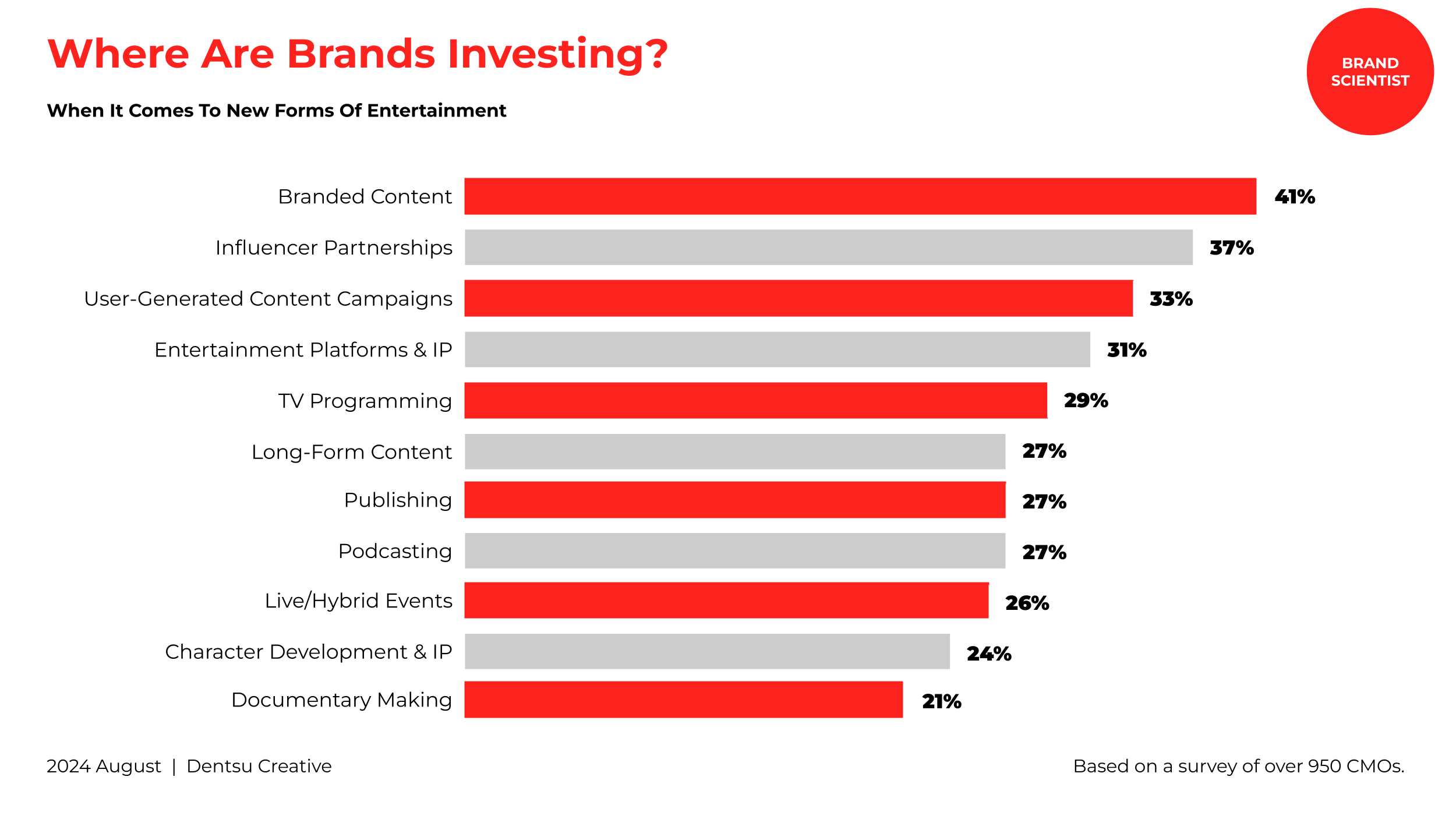Where Are Brands Investing?
Marketers are increasingly focused on integrating their brands into culture, with 88% of CMOs acknowledging its importance in a recent report. However, this presents challenges, as 74% of respondents admit they struggle to find ways to connect their brands to culture effectively. Similarly, 73% find it difficult to tell their brand stories through entertainment, experience, or action. Furthermore, with broadcast media losing relevance, 77% believe that building a brand in this evolving landscape will be challenging.
Despite these hurdles, consumers are generally open to brands participating in cultural conversations, particularly through social media engagement. One major strategy for achieving this cultural integration is through entertainment properties, with 78% of CMOs emphasizing their significance. To support this, brands are investing in entertainment platforms and intellectual property (31%), TV programming (29%), and music production (18%). US marketers, in particular, are heavily invested in content-driven marketing efforts.
Branded content, influencer partnerships, user-generated campaigns, and podcasting are all key areas of investment, with influencer marketing standing out as a crucial component of modern media strategies. Around 77% of CMOs believe that brands, creators, and platforms will collaboratively shape brand narratives, and three in four agree that influencer marketing is vital. Additionally, 80% highlight the growing importance of earned attention, reinforcing the shift away from traditional advertising.
However, while partnerships offer opportunities for cultural relevance, they also introduce challenges. Sixty percent of marketers recognize the tension between excitement and the loss of control in brand collaborations. As a result, three-quarters agree that brands should not only engage with culture but actively create it, focusing on building their own audiences rather than merely leveraging external platforms.
Key Actionable Takeaways:
Develop Cultural Integration Strategies – Align brand messaging with relevant cultural trends and movements to enhance consumer engagement.
Invest in Entertainment-Driven Content – Explore opportunities in entertainment, such as branded shows, music collaborations, and interactive experiences.
Leverage Social Media for Cultural Engagement – Participate in trending conversations and cultural moments to remain relevant and visible.
Diversify Content Channels – Move beyond traditional media by incorporating influencer partnerships, podcasts, and user-generated content.
Prioritize Influencer Collaborations – Work with creators who have built trust with their audiences to enhance brand authenticity and reach.
Balance Control and Creative Freedom – Foster meaningful partnerships while allowing influencers and content creators to bring their unique voice to brand messaging.
Focus on Earned Attention – Shift marketing efforts towards organic engagement strategies, such as viral content, word-of-mouth, and authentic storytelling.
Develop Brand-Owned Platforms – Build communities through owned media channels rather than relying solely on third-party platforms.
Create Interactive Consumer Experiences – Engage audiences through immersive experiences, gamification, and live events.
Measure Cultural Impact – Track engagement, sentiment, and brand perception to assess effectiveness in cultural marketing efforts.
